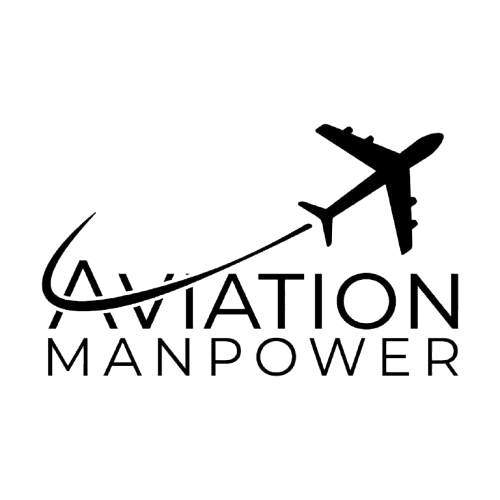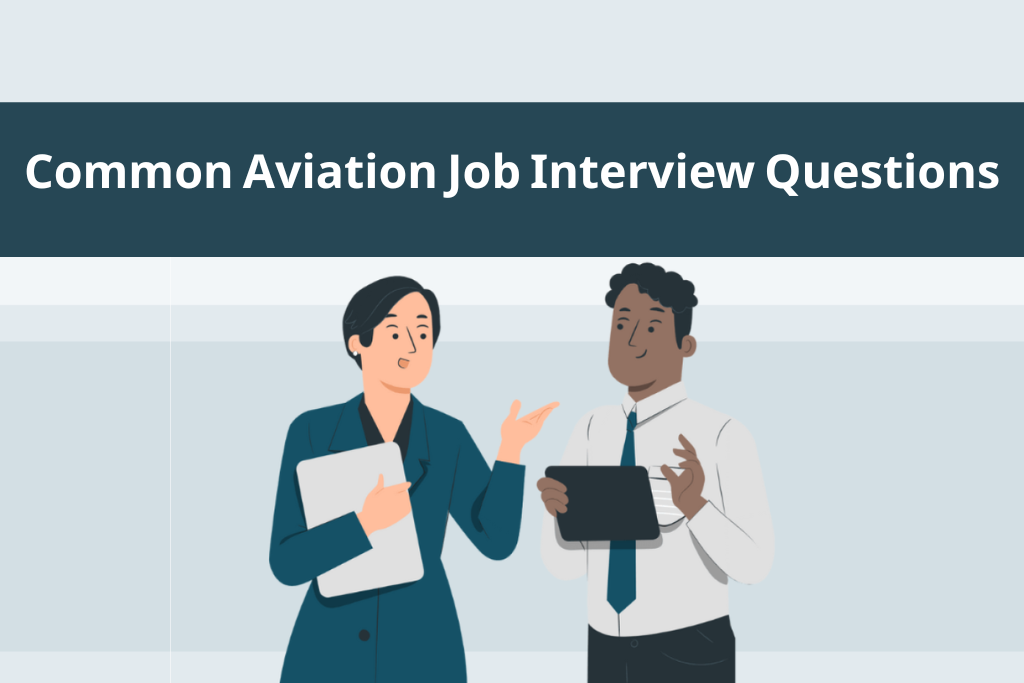Introduction:
Landing a job in the aviation industry is an exciting opportunity, but the journey doesn’t end with submitting your resume. To truly stand out, you’ll need to ace the interview. Whether you’re applying for a position as a pilot, air traffic controller, aircraft maintenance technician, or in another aviation-related role, interview preparation is essential.
Aviation job interviews often involve a series of specialized questions that assess both your technical knowledge and your ability to handle high-pressure situations. In this blog, we’ll walk you through some of the most common aviation job interview questions and provide tips on how to answer them effectively.
The goal is to help you showcase not just your qualifications, but your passion for the aviation industry, your ability to work as part of a team, and your problem-solving skills. Knowing what to expect during the interview process and preparing for these common questions will help you confidently present yourself to potential employers, and increase your chances of securing a job.
1. Tell us about yourself.
Why it’s asked: This is a classic interview question that allows you to introduce yourself in a professional context. The goal is to provide a brief, relevant summary of your background and why you’re suited for the position.
How to answer: Start by introducing your relevant education and career background. Highlight key skills, certifications, or experiences that directly relate to the job. Keep it concise, focusing on the most important and relevant aspects of your career, and briefly explain why you’re passionate about aviation.
Example:
“I’m a certified pilot with over 1,500 flight hours and a background in both commercial and private aviation. I’ve worked with a variety of aircraft types, and I’m particularly skilled in maintaining focus under high-pressure conditions, ensuring safety and efficiency at all times. I’ve always had a passion for aviation, and I’m excited about the opportunity to apply my skills with your company.”
2. What inspired you to pursue an aviation career?
Why it’s asked: Employers want to know about your motivation for choosing this field. They’re looking for individuals who are passionate and genuinely interested in aviation, as this often leads to greater dedication and job satisfaction.
How to answer: Be honest and personal. Share your story of how you became interested in aviation, whether it was a childhood dream, a personal experience, or a turning point that inspired you to pursue the field. Demonstrating your passion for aviation can make you more memorable to interviewers.
Example:
“I’ve been fascinated by aviation since I was a child, watching planes take off and land near my home. After taking my first flight lesson in high school, I knew that aviation was my calling. I love the challenge, the discipline, and the constant learning that comes with working in this industry.”
3. How do you handle stressful situations or emergencies?
Why it’s asked: Aviation professionals are often required to think on their feet and remain calm in high-pressure environments, whether it’s during an emergency on a flight or while coordinating operations at an airport. This question assesses your ability to handle stress effectively.
How to answer: Share examples of how you’ve managed stress or emergencies in the past. Highlight your ability to stay calm, follow protocols, and make clear decisions under pressure. It’s important to show that you’re level-headed and able to focus on solutions, not just the problem.
Example:
During a flight as a first officer, we experienced unexpected turbulence and a slight mechanical issue. I immediately followed protocol, communicated clearly with the captain and cabin crew, and ensured the safety of the passengers. I remained calm, analyzed the situation, and helped execute the necessary steps to resolve the issue.”
4. How do you prioritize safety in your work?
Why it’s asked: Safety is paramount in the aviation industry. Employers need to know that you take safety protocols seriously and can demonstrate your commitment to maintaining the highest standards of safety in your job.
How to answer: Explain how you incorporate safety into your daily work routine, from following standard operating procedures to performing checks and assessments. If you have specific examples of how you’ve prioritized safety in past roles, share them.
Example:
“I always prioritize safety by strictly adhering to company protocols and industry regulations. For instance, before every flight, I conduct a thorough pre-flight inspection to ensure the aircraft is in perfect working condition. If there’s any doubt or uncertainty, I immediately report it and work with the team to resolve it. I’ve also been trained in emergency response and keep up with the latest safety procedures to stay sharp.”
5. What do you know about our company?
Why it’s asked: Employers want to see that you’ve done your homework and are genuinely interested in their company. They’re looking for candidates who are aligned with the company’s values and understand its goals.
How to answer: Research the company beforehand and mention specific details, such as their history, values, and key achievements. If applicable, discuss recent news or projects they’re involved with, or share what excites you about the company’s culture or mission.
Example:
“I’ve done extensive research on your company, and I’m impressed by your commitment to sustainability and innovation in the aviation sector. I know that you recently launched a fleet of fuel-efficient aircraft, and I’m excited about the opportunity to contribute to such an environmentally conscious approach to aviation.”
6. How do you stay current with industry trends and developments?
Why it’s asked: Aviation is a fast-moving field, with new technologies, regulations, and best practices constantly emerging. Employers want to know how you stay informed and ensure that your knowledge and skills are up-to-date.
How to answer: Mention the specific resources you use to stay informed, such as industry publications, online courses, conferences, or professional associations. It’s important to show that you’re proactive about continuing education and professional development.
Example:
“I stay current with the latest developments in aviation by subscribing to industry publications like Aviation Week and attending aviation conferences and webinars. I’m also a member of the Aircraft Owners and Pilots Association (AOPA), which gives me access to valuable resources, training, and networking opportunities.”
7. Tell us about a time you worked as part of a team to solve a problem.
Why it’s asked: The aviation industry relies on teamwork to ensure safety, efficiency, and smooth operations. Employers want to see how well you work with others and how you contribute to a team effort.
How to answer: Share a specific example of a time when you collaborated with others to overcome a challenge. Focus on your role in the team, how you communicated with others, and how your efforts led to a successful outcome.
Example:
“In my previous role as a ground operations manager, I worked with a team to address a major scheduling issue caused by bad weather. We communicated effectively with flight crews, baggage handlers, and air traffic control to make sure all flights were safely and efficiently rerouted. My ability to stay organized and prioritize tasks allowed us to minimize delays and keep passengers informed.”
Conclusion:
Preparing for an aviation job interview requires more than just understanding the technical aspects of the role. It’s about demonstrating your passion for the industry, your ability to handle pressure, and your commitment to safety and teamwork. By practicing answers to common interview questions, you can confidently showcase your qualifications and increase your chances of landing your dream job in aviation.
Remember, each interview is an opportunity to not only demonstrate your skills but also to convey why you’re the best fit for the role. Take the time to research the company, reflect on your experience, and stay calm and confident. Good luck with your aviation job interview!
FAQs
1. How can I prepare for aviation job interviews?
Prepare by researching the company, practicing common interview questions, and reflecting on your relevant experiences. Be sure to highlight your knowledge of safety procedures and your ability to work as part of a team.
2. What’s the best way to answer technical questions in an aviation interview?
For technical questions, stay calm and provide clear, concise answers. If you don’t know the answer to a specific question, explain how you would go about finding the solution, demonstrating your problem-solving skills.
3. How can I stand out during an aviation job interview?
To stand out, show genuine passion for the aviation industry, demonstrate your problem-solving abilities, and emphasize your commitment to safety. Also, make sure to ask thoughtful questions about the company and its operations.
4. What type of attire should I wear to an aviation job interview?
Dress professionally, typically in business attire, to show respect for the interview process. Depending on the company culture, you may want to adjust your attire to match the formality of the environment.5. What should I do if I don’t know the answer to a question during the interview?
If you don’t know the answer to a question, stay calm and offer an informed response based on what you do know. If necessary, be honest and explain how you would approach the problem or seek assistance.

